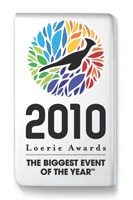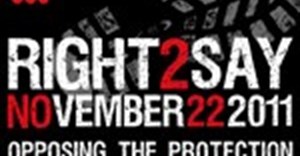The waning influence of ad award shows

That's a lot of caring taking place right there, so why am I seeing more and more stories along the lines of 'Death to Design Awards', published on the influential design blog Design Observer, or "What's wrong with advertising award shows?", published on Adsoftheworld?
Moving and moving on
I suspect the centre of the industry is moving. Moving on, to be precise. The Great Recession, as the last economic crisis is increasingly being called, changed our industry more than it might care to admit.
It has put consumers firmly back on the agenda of brand managers, who wants agencies to forget about awards and stay focused instead on the strategic importance of the conversation that gets people engaged with a brand - and keeps them engaged.
The realisation that organisations need more honest, and thanks to the rise of social media, intimate, relationships with consumers, translated into the realisation that marketers needed more intimate relationships with their agencies. This back to 'people basics' continues to have a knock-on effect, as agencies are coming to realise the need for a more intimate relationship (as opposed to relations, stop sniggering) with their own people.
A key point made across the board by the teams behind this year's most interesting agency launches - and 2010 saw a good haul of them, from Livio Tronchin, Myles Hoppe and Mark Stead at Derrick and Ben Wren and Michael van den Heerik at 60layers, to Mike Abel and his team at M&C Saatchi Abel - is that agencies no longer sustain intimate relationships with clients. This disconnect drove these entrepreneurs, all passionate advertising people, perfectly understandably, to seek a model that allows them to reconnect with the people they do business with. Creativity in isolation offers less and less reward it seems.
Meant something
Andrew Whitehouse took members of his FoxP2 team to Afrika Burn this year. They had a party, they had time to get to know one another better, and they had an experience. A creative director related to his team in a way that in all likelihood meant something, especially if he did so not as a creative director. It's why Whitehouse helps run one of the most inspiring ad agencies in the country and why it remains one of the most creative in the industry.
In "Death to Design Awards" Maria Popova argues that "the output of this flawed and incomplete system of evaluation becomes the currency designers flash at prospective clients and use to bargain their billing rates. It makes clients lazy and designers complacent. Lazy because it creates a cheat sheet for judging the merit of a designer or studio, making the client uninterested in actual inquiry into the process, work and product of smaller studios and emerging designers who may actually have a better, fresher solution to the client's problem than the award-encrusted top-biller. Complacent because it's easy to buy into your own brilliance when you spend your days sitting across a shelfful of awards in your posh office. And between laziness and complacency, the whole marketplace for design becomes a self-contained universe isolated from the bigger cultural context in which it lives and from the human lives it touches."
Information, and for the moment I'm including advertising here, makes an increasingly fleeting impression due to the volumes we are forced to process daily. Michael Bierut, also on Design Observer, notes that award shows return an industry's attention "to something that's become easy to ignore: the design artefact."
Preserves far longer
But the web, with its proliferation of blogs, magazines and corporate websites, already preserves design, especially advertising design, for much longer than in the past.
And, as more people connect to digital environments, the more exposure design receives. Award annuals get flipped through; research, whether it's to back up what's written in a CV or to access a portfolio of work, is done online. What industry commentators say, and what consumers say, now carry more weight that what award shows say. Young designers are loading portfolios onto Flickr and sites such as 10and5.com and make contacts via LinkedIn to build their profiles.
This isn't new. It's been happening for at least a decade now. But change happens slowly in some corners.
Creativity thrives on renewal, imagination and change. Awards shows' revenue models is built on entry volumes and sponsorships; their solution to the changing communication environment is simply to add more categories, as if spending five hours in bowels of the Good Hope Centre as was the case with the 2010 Loeries awards ceremony, isn't punishing enough (no wonder they have to spread it over two mind-numbing evenings). While advertising seeks communication solutions for an age marked by information overload and attention deficit, its trade shows swings in the opposite direction.
Sign
Once awards shows grew the creative industry; now the creative industry is outgrowing award shows. It's a sign of how far advertising has come to be strategically integrated into the broader business environment.
For more:
- Bizcommunity Poll: Is the influence of ad awards waning?
- Bizcommunity special section: The Loerie Awards
- Bizcommunity search: Loerie
- Bizcommunity: Twitterfall
- Loeries site: www.theloerieawards.co.za
- Loeries Twitter: @loeries2010
- Loeries Twitter Search: Loerie OR Loeries OR Loeries2010
- Creative Week: www.creativeweekct.co.za
- Google News Search: Loerie
- Facebook: The Loerie Awards page

About Herman Manson: @marklives
The inaugural Vodacom Social Media Journalist of the Year in 2011, Herman Manson (@marklives) is a business journalist and media commentator who edits industry news site www.marklives.com. His writing has appeared in newspapers and magazines locally and abroad, including Bizcommunity.com. He also co-founded Brand magazine.





![[Orchids & Onions] Wipe the lipstick off this pig...](https://biz-file.com/c/1501/250270-300x156.jpg)




